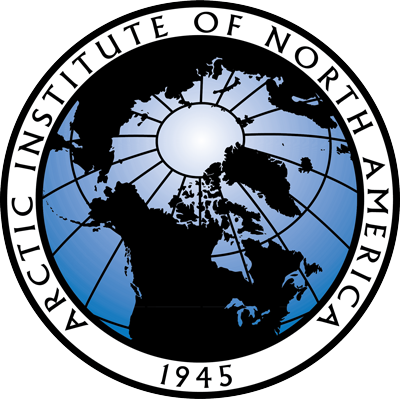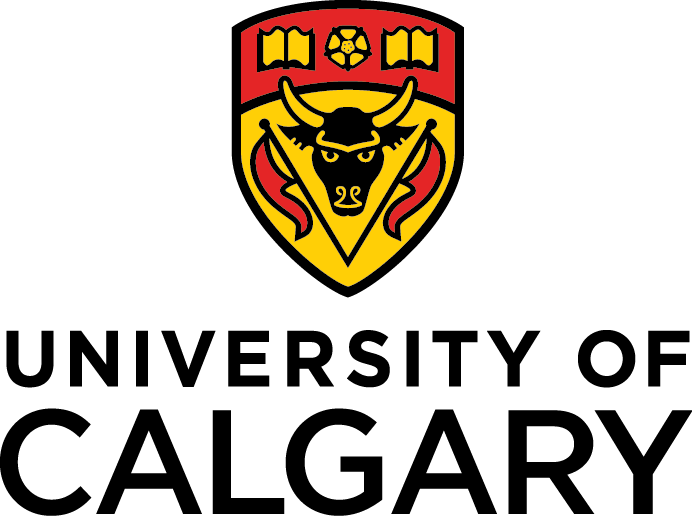ITA YATI: A SYMPOSIUM ON TRADITIONAL KNOWLEDGE
Yellowknife, Northwest Territories
September 19 – 21, 2014
The Tłı̨chǫ Government, the Government of the Northwest Territories and Canadian Polar Commission are co-hosting a multi-event symposium to advance the use of Traditional Knowledge.
Overview
The symposium will comprise four companion events Friday though Sunday:
•A kick-off event in Behchokǫ̀ in honor of Aboriginal elders, with invitations to leaders, symposium VIPs, major sponsors, and key presenters
•One-day scholarly symposium at the Explorer Hotel
•“TEDx Tłı̨chǫ”: a one-day TEDx podium event at the Explorer Hotel
•A companion Traditional Knowledge Festival incorporating booth displays, cultural demonstrations and a book fair
Who Will Want to Attend
The symposium will be of interest to individuals and organizations who are concerned with Northern environmental and socio-economic impacts and for whom community engagement is essential to their success of their initiatives. This includes:
•Non-renewable resource developers especially CEOs, regulatory affairs, environmental and community relations professionals
•Public Government, executive level managers, regulatory, policy and environmental professions
•Aboriginal Governments especially chiefs, band councilors, executive directors and environmental and regulatory affairs managers
•Consulting firms, especially senior executives and project managers working with the above
•Universities and research institutes, including Aboriginal research and cultural organizations
Objectives
The symposium will offer fresh insights into the meaning and uses of traditional Aboriginal knowledge with presentations from a wide range of perspectives for the purpose of:
•broadening the appreciation of TK’s relevance to modern research and contemporary society
•advancing its research role to new levels
•honoring the carriers of traditional knowledge and acknowledging the ageless quality of its origins
•building partnerships aimed at furthering the conceptual appreciation and uses of traditional knowledge
•commemorating the opening of a important new Northern research institute, the Tłı̨chǫ Research and Training Institute
Benefits of Sponsorship
•New understanding important to the success of your organization’s Northern objectives and activities, including insights for enhancing the integration of TK into your organization’s practices
•Privileged seating and VIP opportunities for personal exchange with the presenters and other Northern leaders including opportunities to build new collaborative relationships for TK initiatives
•A chance to demonstrate leadership in northern community building and the advancement of cross-cultural understanding
•Exclusive opportunities to signal your values to the broader Northern community through branding, image association, and placements
•Special opportunities to explain your mission and your development goals through conference booths and other direct corporate communications
TEDxTłı̨chǫ
The companion TEDx-licensed podium event would direct attention towards the future of Traditional Knowledge and the new thinking shaping that future. The TED concept’s emphasis on succinct, tightly focused, highly accessible deliveries (not exceeding 18 minutes) has the potential of transforming this otherwise academic topic into an important contemporary issue of deep social and cultural concern. The TED brand, image and profile will spark strong community interest and draw strong live and streamed attendance.
Background
2014 is an important mile-marker for Traditional Knowledge in Canada’s North. It marks the third decade of the GNWT’s Traditional Knowledge policy. It caps the 15th anniversary of the Nunavut government’s Traditional Knowledge policy framework, Inuit Qaujimanituqangit. It coincides with the establishment of the Tłı̨chǫ Research and Training Institute which joins other northern Aboriginal governments and organizations in seeking to document and advance the status of Traditional Knowledge, such as the Gwich’in Social and Cultural Institute www.gwichin.ca/ and the Dene Cultural Institute www.deneculture.org/the-institute/. In addition, May 2014 commences the final year of Canada’s chairmanship of the Arctic Council, with its special emphasizes on Traditional Knowledge as an essential key to circumpolar knowledge and understanding. On the federal front, longstanding policy requires TK’s incorporation into environmental impact assessments for Northern development projects. In spite of TK’s current prominence, uncertainty remains regarding its use, its compatibility with scientific method and its contemporary relevance. There are numerous salient aspects to this international debate and ample authoritative presenters available with incisive, cutting-edge perspectives to share.
What is TK?
Indigenous scholars have suggested that traditional knowledge unifies theory and practice and that it cannot be separated from a way of being and a way of doing. TK as a way of knowing is a method of reasoning that is most appropriate for complexity, as it seeks to make sense of diverse variables. It also purposely integrates subjective ways of knowing such as spirit, values and compassion. This range of descriptions has led some observers to conclude that it is not a proper field of study at all. Others argue that the prefix “traditional” is completely misguided, as this suggests something that is static, rigid, fixed and unchanging when in fact it is fluid and generative, integrating the weave of pattern and variation into new ways of knowing.
TK historically is entangled with the spread of western science and scientific method in the world. TK is not a precursor to science, nor encompassed by science, although a number of commentators attempt to see it through a modern scientific lens to either convey status, or conversely, to suggest its inferiority. Science too has many faces, but in contrast to traditional knowledge as a method is inclined towards quantitative simplification. The privileged position of western science and its colonial impacts on the marginalization and disabling of traditional knowledge must be noted in any discussion of TK. Fully three quarters of the modern “scientific” pharmacopoeia is derived from traditional folk medicines, a fact that has raised global concerns regarding the corporate patenting of local knowledge.
Speakers
The speakers will represent a cross-section of leading regional, national and international thinkers on the subject of Traditional Knowledge, especially its conceptual aspects. Some outside presenters being considered include:
Suzanne Stewart is a member of the Yellowknife Dene First Nation, a psychologist and professor at U of Toronto’s Ontario Institute for Studies in Education (OISE). She is the new Canada Research Chair in Aboriginal Homelessness and Life Transitions. She has firsthand experience with her subject matter. Her mother, and many other family members were forcibly removed from family and sent to Canada’s infamous residential schools.
Linda Tuhiwai Smith was recently named to the New Zealand Order of Merit for services to Maori and education. She teaches indigenous education at the University of Waikato in New Zealand. Author of Decolonizing Methodologies, Smith contributes insight into the ways Western scholarly research has played a role in the process of colonization.
Hugh Brody is author of The People’s Land, Indians on Skid Row, and Living Arctic, among many other books. His films include Treaty 8 Country and his latest, Tracks Across Sand, is a community project with the Kalahari San. A Canada Research Chair in Aboriginal Studies at the University of the Fraser Valley, Brody is tightly intertwined with the story of Northern Canada, from his involvement in the formation of Nunavut to his testimony in the Berger Inquiry.
Tim Ingold is an expert in human-animal relations, having worked with the Skolt Saami of northeastern Finland. His books include Hunters, Pastoralists and Ranchers: Reindeer Economies and Their Transformations and Ways of Walking: Ethnography and Practice on Foot. Ingold’s latest work delves into embodied skills of perception.
Shawn Wilson is author of Research is Ceremony, which bridges Australian and Canadian Indigenous research paradigms, and Gwitch’in Native Elders: Not Just Knowledge but a Way of Looking at the World. Opaskwayak Cree from northern Manitoba, Wilson is documenting his parents’ life stories and undertaking an overland journey around the world to visit with Indigenous Healers and video-documenting their stories.
George Dei teaches Anti-Racism Education at OISE. He will be joining us from the middle of a sabbatical year in Ghana, where he is writing a book on Indigenous African Proverbs. Among many honors, he has received the Canadian Alliance of Black Educators Award for Excellence in Education and the Planet African Television Award for African Renaissance
George Nicholas developed and directed SFU’s Indigenous Archeology Program on the Kamloops Indian Reserve from 1991-2005. He directs the major international research initiative “Intellectual Property Issues in Cultural Heritage” to explore equitable exchanges of knowledge relating to archeology.
Budd Hall is UNESCO’s co-chair of Community-Based Research and Social Responsibility in Higher Education. He will speak about partnership between universities and other knowledge creators in NGOs, community organizations and social movements.
Event Program
Friday, September 19, 2014
•Traditional Knowledge Elders’ Event in Behchokǫ̀
•Evening social event for VIPs in Yellowknife
Saturday, September 20, 2014
•Symposium lectures at the Explorer Hotel, Katimivik Rooms
•Traditional Knowledge Festival
Sunday, September 21, 2014
•TEDxTłįchǫ at the Explorer Hotel, Katimivik Rooms
•Traditional Knowledge Festival
Steering Committee
•Tom Andrews, Senior Anthropologist, PWNHC, GNWT Dept. of Education, Culture and Employment
•John B. Zoe, Senior Advisor, Tłı̨chǫ Government
•Jim Martin, Senior Policy Advisor, Priorities and Planning, Tłı̨chǫ Government
•David Miller, Northern Coordinator, Canadian Polar Commission
•Jessa Gamble, consultant/event organizer

